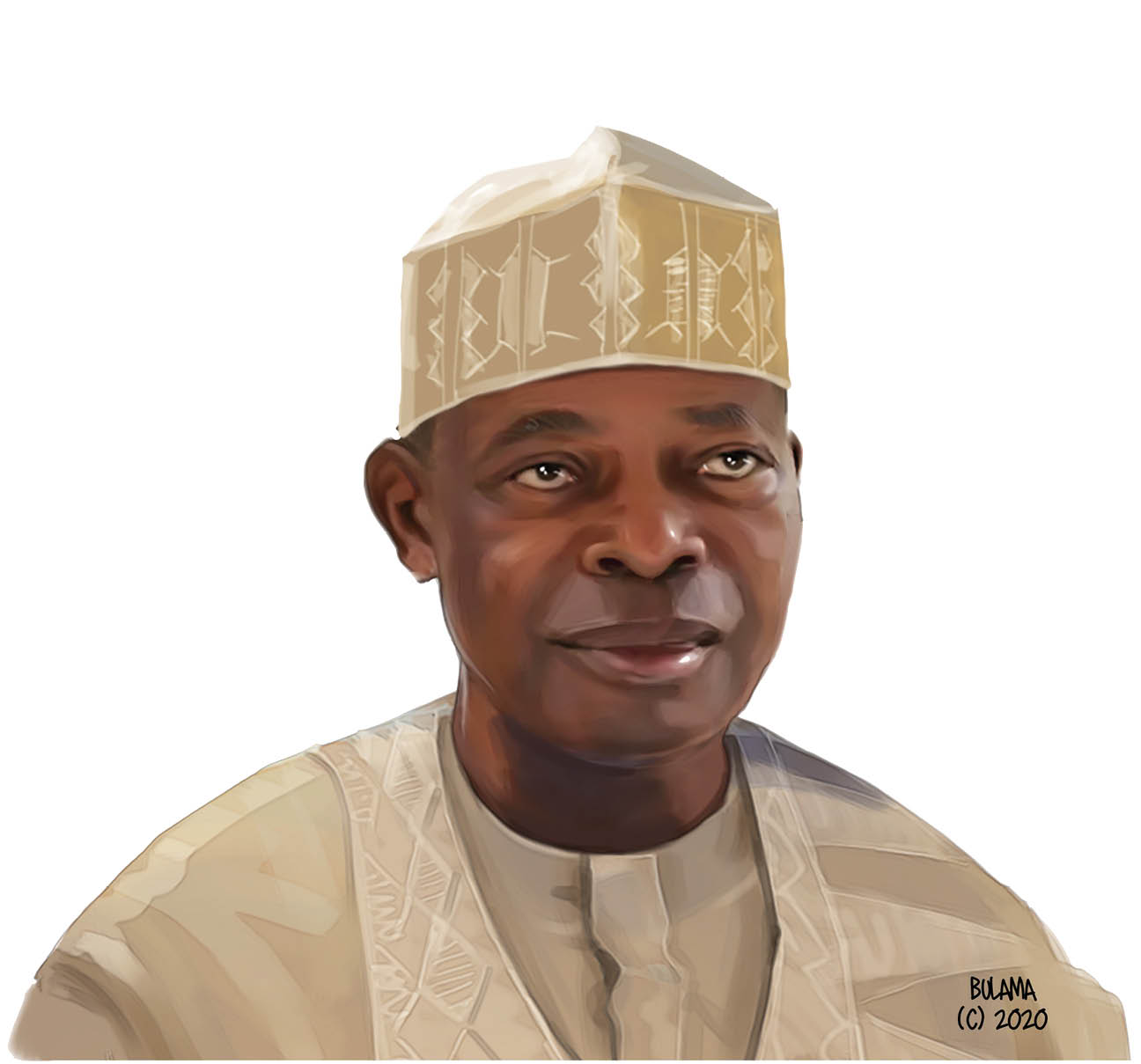General Domkat Bali (retd) was one of the most senior military officers and a prominent player in the military administration of General Ibrahim Babangida. In this interview, the late Ponzhi Tarok said he never became Nigeria’s head of state because he was not interested in the position. He also spoke on other national issues.
After serving in the military for three decades, how well would you say you have adjusted to your new life?
I am yet to adjust to it. I have always been a very free person in the sense of going where I want and doing what I want to do without restriction whatsoever. In this traditional setting, there are too many restrictions, too many don’ts and dos; and the don’ts are more than the dos.
- I would’ve become head of state if I wanted – Domkat Bali
- Buratai’s coup alarm antic to save service chiefs from sack, say elders
What is the major difference between serving in the army and being restricted to your palace and the community?
The major difference is the restriction. In the army, nobody restricted me. I would go to the office in my uniform and do my normal work. When I returned home I changed from my uniform and lived my life like anyone else. I am no longer that free.
Why did you accept the call to traditional leadership, especially because it meant restricting you from life the way you loved it?
I would have been castigated by my people if I had declined the call. In Langtang, chieftaincy issues run within families. In our case there are five royal families. It goes from one to another. It got to my family in my time and when they sent for me, I told them that I was an ambitious soldier; I still wanted to be a general. I told them to leave me out of chieftaincy issues. I thought I had gone away from it, not knowing that they would come again. They said our tenure was still there. Again, it fell on me to come and become the Ponzhi Tarok. Having dragged my feet in the past, I didn’t want to do anything like that again, so I accepted the offer.
The people of Langtang are many and prominent in the military, what is the secret?
It is the Tarok mindset. The people believe the army is for those who are brave and strong and are ready to go to war, and so on; hence it is very appealing to their mentality.
Is any of your family members in the army?
I have only one son, and he doesn’t appear to be keen on a military career.
Would you say you are a democrat at heart?
Oh yes. Even during the civil war, I was still a democrat.
Yet, you served under the military presidency?
That is what the military is all about.
How would you reconcile that contradiction?
I wasn’t meant to be a soldier from the word go. I never wanted the army as a career. It was Ahmadu Bello who made sure I got into the army. I tell people that the North died with Ahmadu Bello, and I mean every word of it. Ahmadu Bello was truly a good Nigerian. He was not biased. Ahmadu Bello came to Kuru (near Jos), I think, in 1958. I was then in Form Five.
He went round the North, preaching to us to join the military. He felt there were no sufficient northerners in the services. He was not looking for Fulani men to empower. He was genuinely interested in seeing that the North was not at a disadvantage among the other regions of the country. He came and got me, for instance, to join the army. He did so, not because he despised me. As far as he was concerned, northerners who were qualified should join the services. When he finished talking to us, he took our names to Kaduna to sit for examination.
How did you make a successful career in the military since you were not keen on becoming a soldier?
I would have hated to go to the Nigerian Defence Academy (NDA) to fail, so I had to do everything to pass and come out well; if nothing else, for the personal pride of being successful.
During the Babangida era, you resigned when you were moved from the Ministry of Defence to Interior, what actually happened?
Maybe I resigned because I felt I had overstayed my welcome. Since my juniors had come and gone, why should I be tagging around?
What is your relationship with Babangida like? Do you contact each other?
I don’t; I am a very reserved person. I keep to myself very much. Otherwise, Babangida is generally a nice person.
Does he call you, at least during celebrations?
He has done that once or twice, not very often.
Did you foresee that Abacha would become head of state?
I could have become head of state, but I let it pass. I wasn’t keen, anyway, but I could have been the head of state. .
Do you regret leaving the army when you did because you would have been head of state?
No, I don’t regret leaving. If I wanted to be head of state I would have become one. Merely saying that I was interested would have been it.
You played significant roles in the reform of the Nigerian Army. How do you view the army at that time, compared to what it is today?
Nothing seems to be the same in Nigeria any more. Corruption has done much damage to the nation. People manipulate things one way or another in all sectors, including the military. In my time, if you tried such rubbish they would kick you out.
What do you think of the 1976 episode when General Iliya Bisalla and many Middle Belt officers were executed over an abortive coup, especially because that episode affected top military officers from Plateau State?
If Bisalla wanted to be head of state, he should have taken steps. It was like he was scared of becoming head of state. He wavered too much. Dimka had virtually made him head of state, only for him to dash it away.
In efforts towards lasting peace in Plateau State, how often do traditional rulers meet with the governor to discuss peace and unity?
Jonah Jang became a know-it-all sort of chap; and I am an arrogant man, if you like, in the sense that I don’t go to people begging for favours. Anyhow, Gyang Buba (Gbong Gwom Jos) handles chieftaincy issues. He is our chairman (Plateau State Council of Chiefs). When I became the Ponzhi Tarok, he came to me and said, ‘I have been the chairman of the Traditional Council but now that you are here, you were by far my senior in school’. He felt he should step down for me; but I discouraged him.
At a time, Langtang south was filled with the Fulani and people were asking why I allowed them to stat. I told them that the Fulani were the most peaceful people to stay with. If you don’t touch their cows, they will leave you in peace. So let them be. And they lived here peacefully until they parted peacefully. But if they had dared kill a Fulani cow, it would have led to another thing.
What is the solution?
Again I would ask you to ask the Berom.
Some say the government has not done enough to resolve issues in the Jos crises. What is your opinion?
The truth is that in Berom land, the women are more brave. Take note of this; anytime there is crisis in Berom land, you will find out that it is the women that would come out. The men would just disappear into their farms, but the women would take pestles and what have you and come out. The Taroks are not like that. In fact, if there’s crisis, we keep our women and children in the house and tell them not to come out as we will do the fighting. So it’s this background that leads to this.
What about the issue of indigenes and settlers?
The Jarawa in Jos North should be the ones making the claims, but unfortunately, they are so docile that the Berom are now claiming that the whole of Jos North is their own, yet they cannot even keep the Hausa away. But I would have preferred Jarawa instead of Berom to champion that cause. The Jarawa would have had much more reasons to demand that Jos North is part of their land.
Do you think northern leaders have done enough to curtail insecurity, youth unemployment and other things in the region?
It depends on what you call northern leaders. For instance, what have the Emir of Kano and other leaders done about those things you mentioned? I have said that we have no alternative but to live together. We must live in peace as we have done over the years.
Do you support constitutional roles for traditional rulers?
Traditional leaders are detached from politics. I prefer the neutral role we play. Let the politicians play their own role.
First published by Daily Trust on February 24, 2013

 Join Daily Trust WhatsApp Community For Quick Access To News and Happenings Around You.
Join Daily Trust WhatsApp Community For Quick Access To News and Happenings Around You.


